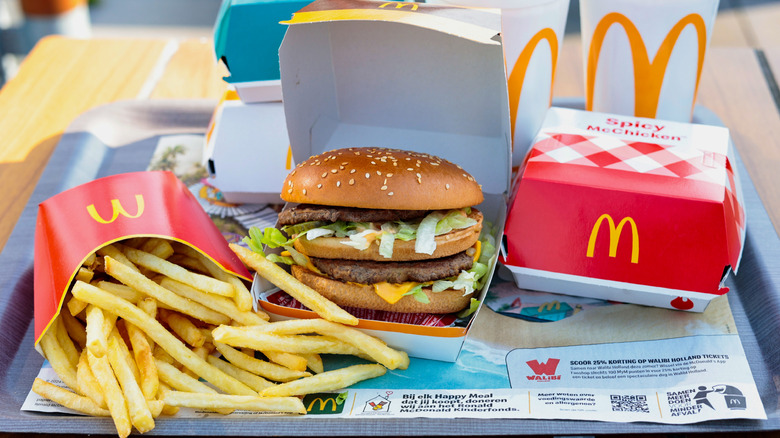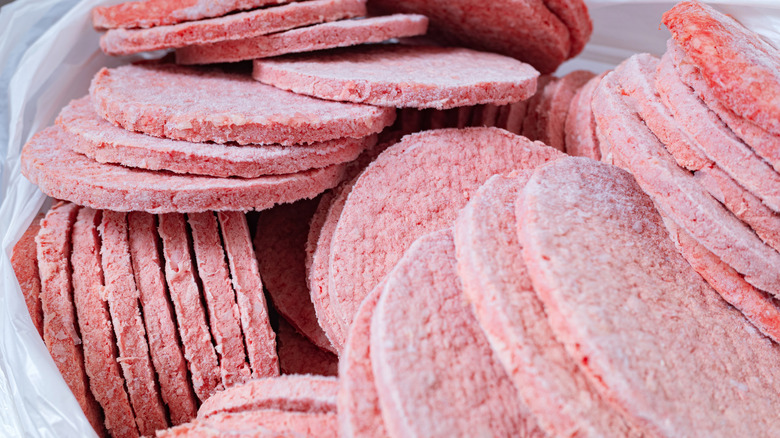Where, Exactly, Does McDonald's Source Its Beef?
It's a surprise to no one that McDonald's is one of the largest fast-food chains in the world, popping out just shy of seven million burgers every day. Besides the ever-greasy, ever-so-salty french fries, hamburgers are the second most popular item on the menu (more specifically, the Big Mac). With dozens of fast food recalls in the last few years alone, customers have become more vigilant about the kind of foods they're consuming, and rightly so. If you've ever wondered where McDonald's sources its uber-successful burger meat you might be interested to know that the largest suppliers are based right here in the United States.
According to McDonald's, the fast-food chain's beef is obtained from a variety of farms across the globe, but the two biggest American suppliers are Oklahoma City-based Lopez Foods and Pennsylvania-based Keystone Foods. The McDonald's website claims that the organization uses "responsibly grown ingredients from the McDonald's community of farmers" in a commitment to build a "better McDonald's" with customer care in mind. Considering the chain removed artificial preservatives and flavors from some classic menu items in 2018, McDonald's seems to understand the demand for simpler ingredients.
McDonald's' beef with beef
Lopez Foods, a pioneer of the meatpacking industry with decades of experience behind it, has supplied McDonald's with beef patties since the late 1960s. Today, you'll find that Lopez Foods supplies meat not only to McDonald's, but also to Walmart, Starbucks, and Burger King, as well. Keystone Foods, the family-run business that invented the Individual Quick Freezing process for flash-freezing meat, has also been a McDonald's supplier for decades. Beyond providing McDonald's with over 150 million pounds of beef annually, the business also provides millions of pounds of fish and chicken each year.
Despite McDonald's' promise that the beef patties are made with 100% ground beef and no artificial preservatives, the chain has still found itself in hot water when it comes to meat quality. Just last October, McDonald's suffered a Quarter Pounder burger recall due to a link to an E. coli outbreak. Not to mention other disputes in recent years about the treatment of farm animals, antibiotic use (though McDonald's claims to be "refining antibiotic selection and administration"), and the sustainability of large-scale animal consumption. Even with efforts to change up routine, McDonald's is finding that winning back customer trust is much harder than it seems.

